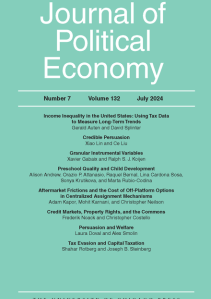<p>This paper deals with the problems encountered in defining and meas-uring the degree of fiscal decentralisation. Drawing on a recent ana-lytical framework of the OECD, different measures of tax autonomy and revenue decentralisation are presented which consider the tax-raising powers of sub-central governments. Taking account of changes in the assignment of decision-making competencies over the course of time, new time series of annual data on the degree of fiscal decentrali-sation are provided for 23 OECD countries over the period between 1965 and 2001. It is shown that common measures usually employed tend to overestimate the extent of fiscal decentralisation considerably. Evidence is also provided of increasing fiscal decentralisation in a ma-jority of OECD countries during the last three decades.Drawing on a recent analytical framework of the OECD, different measures of tax autonomy and revenue decentralisation are presented which consider the tax-raising powers of sub-central governments. Taking account of changes in the assignment of decision-making competencies over the course of time, new time series of annual data on the degree of fiscal decentralisation are provided for 23 OECD countries over the period between 1965 and 2001. It is shown that common measures usually employed tend to overestimate the extent of fiscal decentralisation considerably. Evidence is also provided of increasing fiscal decentralisation in a majority of OECD countries during the last three decades.</p>








